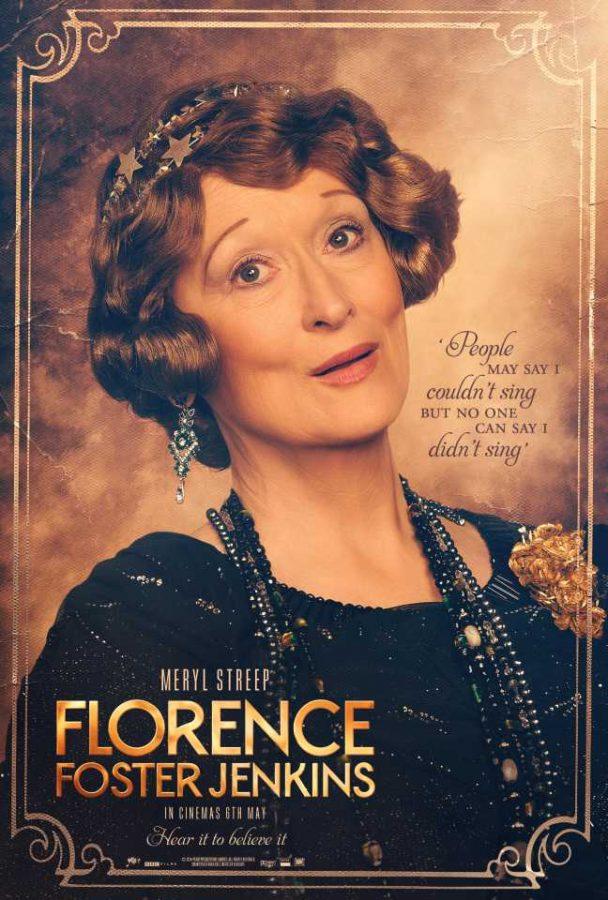“Florence Foster” Falls Flat
August 23, 2016
If you are looking for an amazing movie, an absolute show stopper, one that is realistic and relatable with great special effects and cinematography, then you’re gonna have to keep looking because you aren’t going to find it here in the new movie, “Florence Foster Jenkins.”
Walking into the movie theatre, I was thinking that this was going to be your typical, happy ending, riding off into the sunset on a horse kind of movie. I was wrong.
It is New York, 1944, and Florence Foster Jenkins (Meryl Streep) is an older woman who is extremely wealthy and cannot sing to save her life. As revealed early on in the movie, Florence has Syphilis and has been fighting it for almost 50 years. Regardless, she carries on in life with her head held high and her pocketbook full.
Her husband, St. Clair (Hugh Grant) claims to be loyal to Florence, but in reality has a woman on the side to satisfy his “affectionate needs.” Isn’t a filthy rich wife enough for you?
After hearing a performance from a beautiful young singer in Carnegie Hall, Florence decides that she wants to take up singing again. Of course, St. Clair supports her idea (by support, I mean that he paid people, friends, and newspaper reporters to come to her first concert and praise her for her tremendous “talent”).
Having access to Florence’s bank account, he had money to throw around and made a lot of sacrifices to make his wife happy. Everyone in the city “loved” her (mostly because a lot of them thought it was a joke).
So let’s look at this for a second. Yes it was a beautiful and touching idea to make your wife happy (learn this lesson early on boys, you’ll be better off in the long run), which was basically one of the underlying themes of the movie. The other theme that I saw was “you can do anything that you set your mind to!”
However, you have to stop and think — how in the world could someone like that pull this off? I mean, having practically a whole city support you in something that you are terrible at just because they got paid to tell you so? You can’t do that today obviously because of all the media but even back then it was nearly impossible.
It shows what people are willing to do for money.
This kind of bribery and praise gave Florence a false sense of accomplishment. Why support someone in something that they are really bad at instead of leading them into something that they would love and are really good at? Trust me, that person will thank you someday because that saves them from doing something that isn’t going to take them anywhere.
Because of the praise she got from other people, she felt that she was great (and humorously so). In fact, she felt that she was so great that she should perform at Carnegie Hall in front of about 3,000 people. And that’s what she wanted to do.
That’s what I’d like to call taking it too far. This shows the movie audience that even if they’re really, really bad at something, they should still do it, and on top of that, get praise because they are trying.
This is almost as bad as giving a participation award to a high school football player. Let’s face it, in both situations, you’re too old for that.
Scandalous and funny. But unrealistic and predictable. Hmm, what to do, what to do?
The one main thing that keeps me from dissing the entire movie is the acting. Meryl Streep, Hugh Grant, and Simon Helberg (Cosme McMoon) were superb in acting their parts and making them seem not as fake as the movie did.
Overall, I wouldn’t recommend Florence Foster Jenkins for your next trip to the movies. I’m still trying to decide what was better, Florence’s singing, or the idea to make this movie in the first place.






